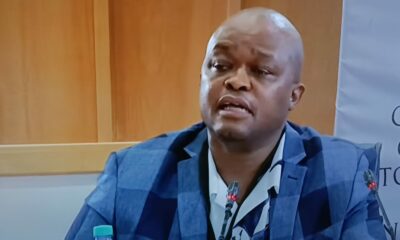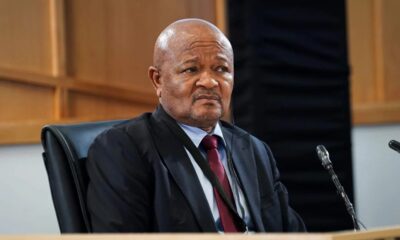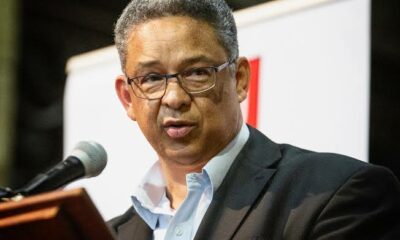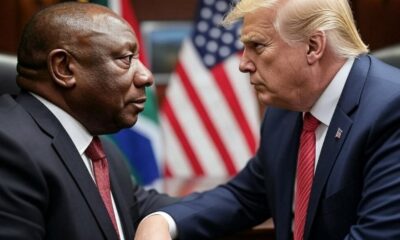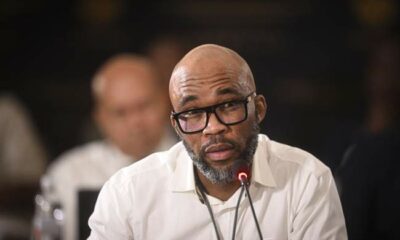News
Inside the Silence: What Cassel Mathale’s Testimony Says About Senzo Mchunu’s Leadership Vacuum
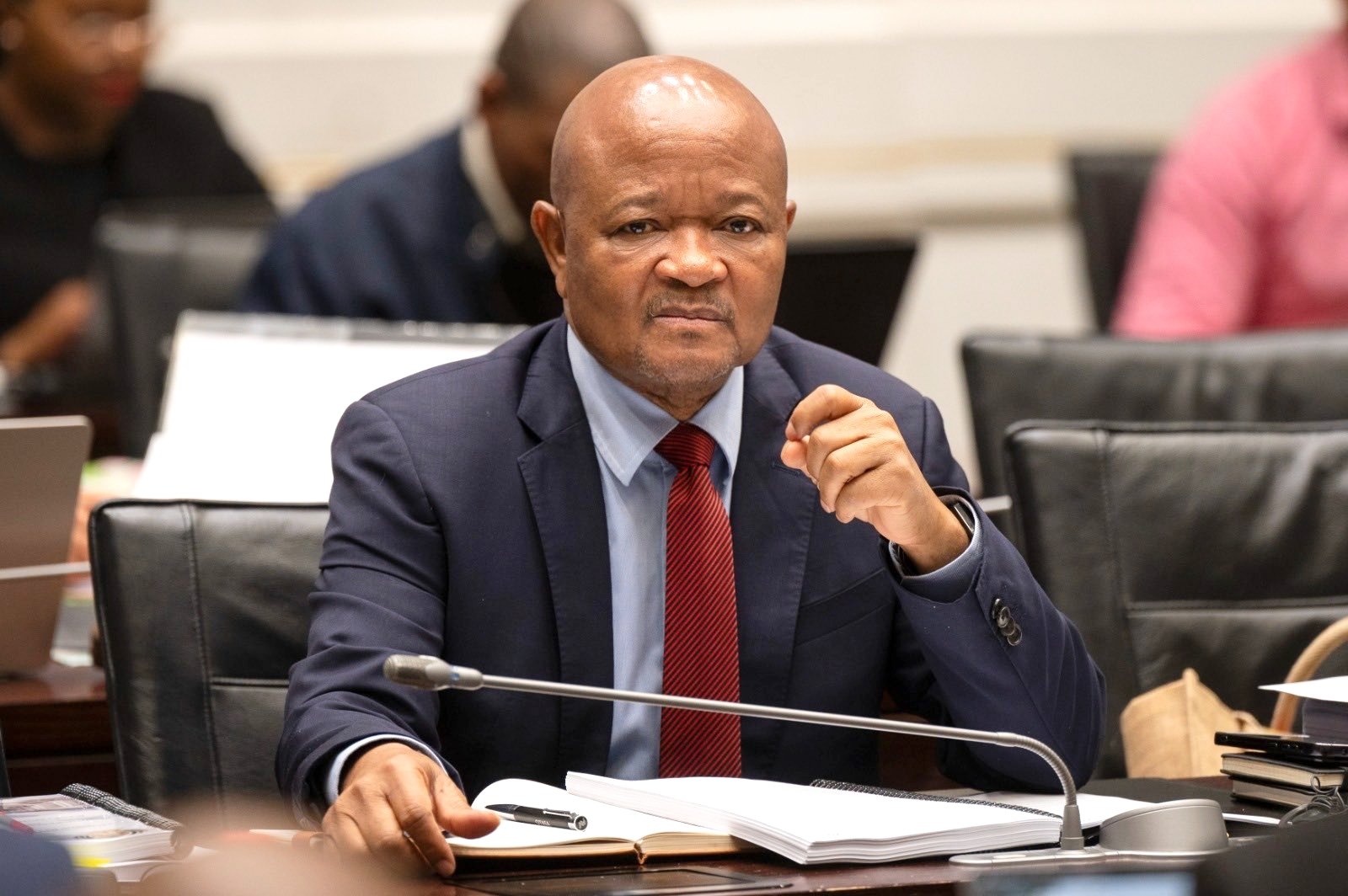
Inside the Silence: What Cassel Mathale’s Testimony Says About Senzo Mchunu’s Leadership Vacuum
It was a rare moment of candour in Parliament and one that laid bare just how deep South Africa’s leadership paralysis has spread within its most critical ministries.
Deputy Police Minister Cassel Mathale, testifying before Parliament’s ad hoc committee investigating political interference in the criminal justice system, revealed something startling: since their appointments last year, neither he nor Deputy Minister Polly Boshielo has been given any formal duties by suspended Police Minister Senzo Mchunu.
“The minister is still getting to grips with his role, and no tasks have been assigned to me or Deputy Minister Boshielo,” Mathale admitted, a statement that drew uneasy murmurs across the committee room.
A Ministry Without Direction
The revelation paints a troubling picture of a police ministry adrift at a time when crime, corruption, and political killings dominate the national agenda. Mchunu, who stepped into the post following President Cyril Ramaphosa’s 2024 cabinet reshuffle, was meant to bring calm after years of tension under former minister Bheki Cele.
Instead, the department appears mired in uncertainty.
Mathale’s testimony described a ministerial office where lines of responsibility remain blurred and where key units, such as the Political Killings Task Team (PKTT), operate in confusion.
A Clash Over the Political Killings Task Team
One of the central disputes in the hearing centred on the PKTT, a specialist unit formed to tackle politically motivated murders, a growing scourge particularly in KwaZulu-Natal and Mpumalanga.
Mchunu had previously told the committee that the PKTT had become “a financial burden” on the SAPS and was not supposed to exist beyond 2022. But Mathale flatly rejected this, citing Cele’s 2023 extension of the unit’s mandate.
“If the team were illegal, its expenditure would also be illegal. But it was never outside the law,” he argued.
The clash underscores an alarming disconnect between the ministry’s top leadership and the operational realities of the police service.
A Structural Crisis in Policing
South Africa’s police ministry isn’t like others, it’s sprawling, complex, and burdened with overlapping entities, from the Directorate for Priority Crime Investigation (DPCI) to the Civilian Secretariat for Police Service.
Mathale pointed this out in his testimony:
“You cannot simply walk in and immediately know who does what. Delegations must come with an understanding of the ministry.”
He stressed the need for multiple deputy ministers given the department’s scale, but even he conceded that without clear delegation, oversight is almost impossible.
Leadership on Paper, Silence in Practice
What stands out from Mathale’s testimony isn’t only the absence of delegated duties, but the broader vacuum of communication and coordination. Even Acting Police Minister Firoz Cachalia, who temporarily replaced Mchunu following his suspension, has yet to formally assign Mathale any new responsibilities.
“We have met and spoken about it,” Mathale said quietly. “But no delegation has been assigned.”
That statement captures the heart of the problem: a ministry operating on autopilot, without a functioning chain of command, while crime and corruption metastasize.
The Bigger Picture: A Ministry Under Siege
The hearing forms part of Parliament’s broader inquiry into allegations of corruption and political interference within South Africa’s justice system, claims that have eroded public trust in both the SAPS and the National Prosecuting Authority.
While Mathale maintained a tone of loyalty, his words were revealing. They point to a department struggling to define itself amid leadership instability, a symptom of the larger governance malaise haunting the country’s security apparatus.
For citizens weary of violent crime, police scandals, and internal turf wars, Mathale’s testimony confirms what many already suspected: South Africa’s fight against crime is being undermined not by criminals alone, but by dysfunction at the very top.
A Glimpse of What Could Be
When pressed on what he’d do differently as minister, Mathale offered a simple, telling answer:
“Working together with the national commissioner and having regular meetings would make things easier. We have huge responsibilities, and consistent communication is essential.”
It was less a policy statement and more a plea for leadership, for direction, and for a police service that actually functions.
South Africans have grown used to political drama. But when dysfunction spills into the heart of law enforcement, it’s not just a governance issue, it’s a safety issue.
Mathale’s testimony may not have been fiery, but in its quiet honesty, it revealed something more disturbing than scandal: a ministry running on silence.
{Source: The Citizen}
Follow Joburg ETC on Facebook, Twitter , TikTok and Instagram
For more News in Johannesburg, visit joburgetc.com

